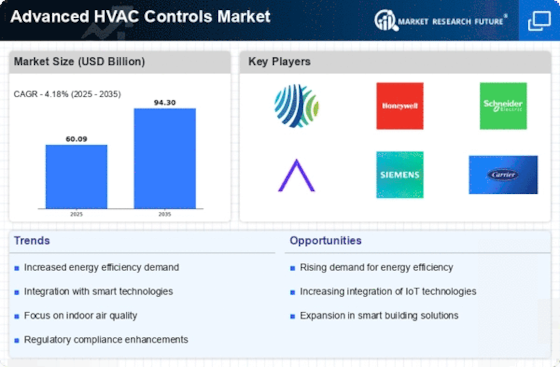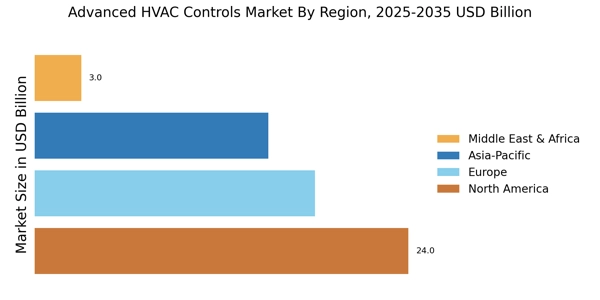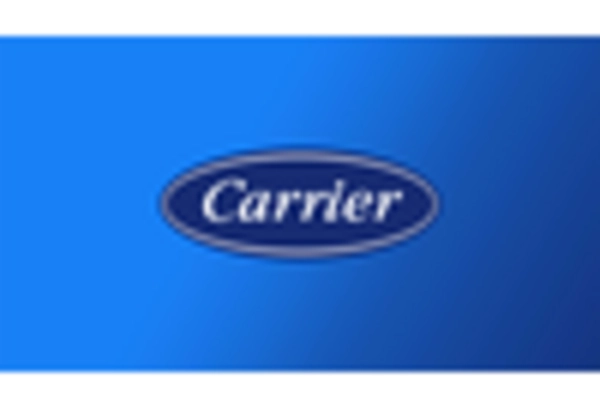Integration of IoT Solutions
The integration of Internet of Things (IoT) solutions into the Advanced HVAC Controls Market is transforming how systems operate. IoT-enabled devices facilitate real-time monitoring and control, allowing for enhanced efficiency and responsiveness. This integration is projected to drive market growth, as it enables predictive maintenance and reduces operational costs. According to recent data, the adoption of IoT in HVAC systems is expected to increase by over 30% in the next five years. This trend indicates a shift towards smarter, more connected systems that can adapt to user preferences and environmental conditions, thereby improving overall performance and user satisfaction.
Regulatory Compliance and Standards
Regulatory compliance plays a crucial role in shaping the Advanced HVAC Controls Market. Governments worldwide are implementing stringent regulations aimed at reducing energy consumption and greenhouse gas emissions. These regulations often mandate the use of advanced control systems that optimize energy use in buildings. As a result, manufacturers are increasingly focusing on developing HVAC controls that meet these standards. The market is likely to see a surge in demand for compliant systems, as businesses seek to avoid penalties and enhance their sustainability profiles. This regulatory landscape is expected to drive innovation and investment in advanced HVAC technologies.
Rising Demand for Energy Efficiency
The rising demand for energy efficiency is a primary driver in the Advanced HVAC Controls Market. As energy costs continue to escalate, both consumers and businesses are seeking solutions that minimize energy consumption while maintaining comfort. Advanced HVAC controls offer sophisticated algorithms that optimize system performance, leading to significant energy savings. Market data suggests that systems equipped with advanced controls can reduce energy usage by up to 40% compared to traditional systems. This growing emphasis on energy efficiency is likely to propel the market forward, as stakeholders recognize the long-term financial and environmental benefits of investing in advanced technologies.
Increased Focus on Indoor Air Quality
The increased focus on indoor air quality (IAQ) is significantly influencing the Advanced HVAC Controls Market. With growing awareness of health issues related to poor air quality, consumers are demanding HVAC systems that not only regulate temperature but also ensure clean air. Advanced HVAC controls can monitor and adjust ventilation rates based on real-time air quality data, thus enhancing IAQ. This trend is expected to drive market growth, as more building owners and facility managers prioritize health and safety in their environments. The integration of air quality sensors into HVAC systems is likely to become a standard feature, further propelling the market.
Technological Advancements in HVAC Systems
Technological advancements are a key driver in the Advanced HVAC Controls Market. Innovations such as machine learning, artificial intelligence, and advanced sensors are revolutionizing how HVAC systems operate. These technologies enable systems to learn from user behavior and environmental conditions, optimizing performance and energy use. The market is witnessing a shift towards more sophisticated controls that can predict system failures and adjust operations accordingly. As these technologies become more accessible, the demand for advanced HVAC controls is expected to rise. This trend indicates a future where HVAC systems are not only more efficient but also more intuitive, catering to the evolving needs of users.
.png)

















